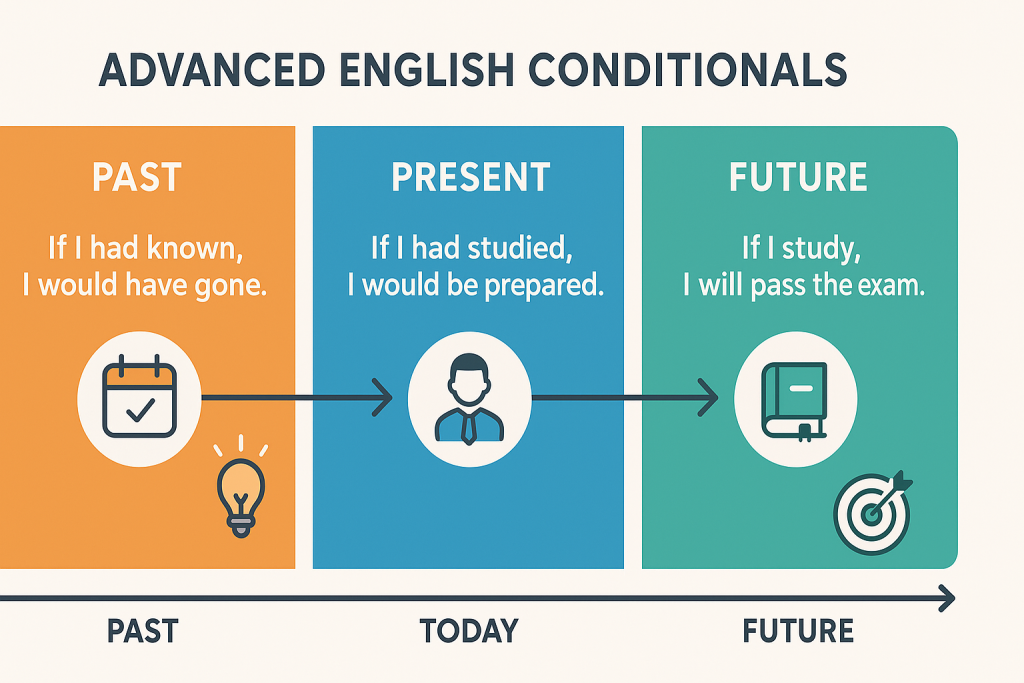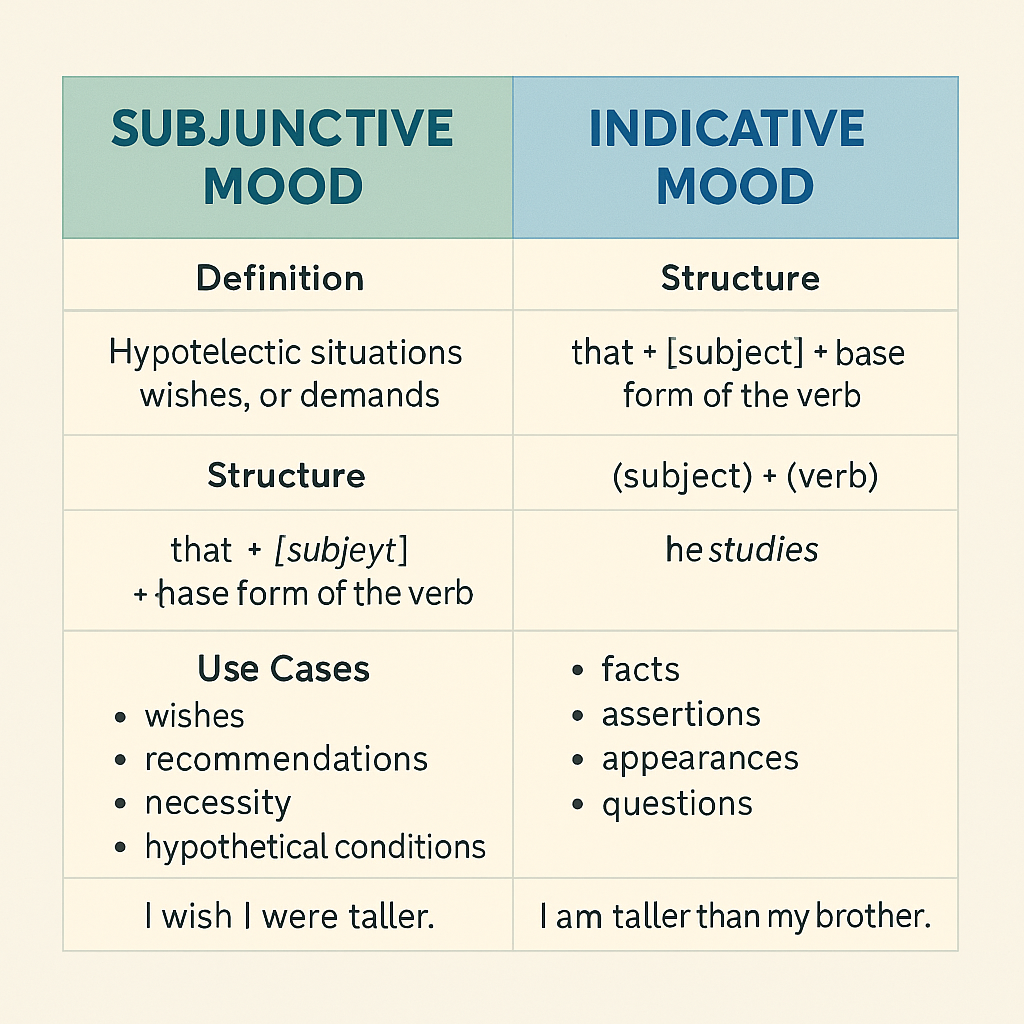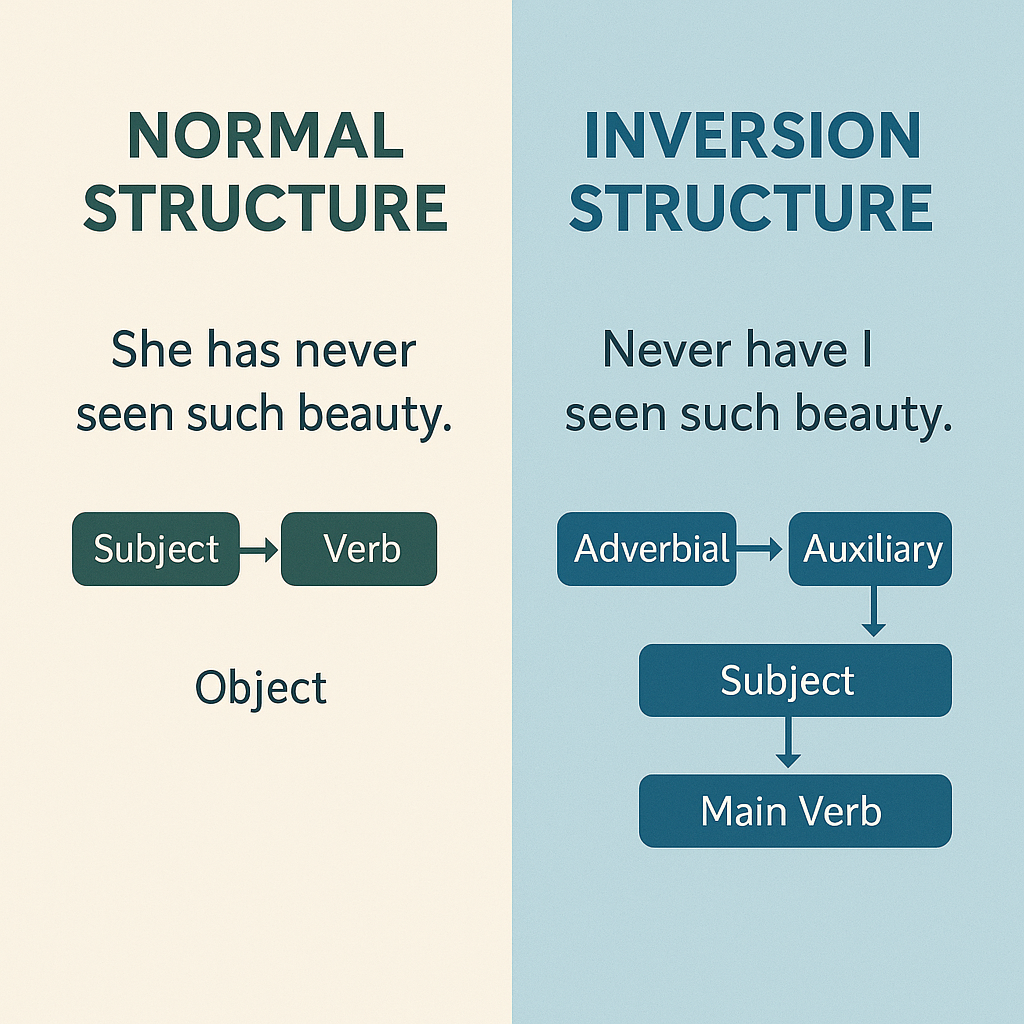Introduction: Is “Advanced” Grammar Even Worth It?
Here’s a fact to warm your self-doubt: Even native English speakers regularly butcher grammar. But you, dear non-native speaker, are here because mediocrity is not your style. You’re not just content with ordering coffee or sending a vaguely coherent email — you want finesse. You want to write like your keyboard is possessed by Oscar Wilde’s ghost. And for that, you’ll need to dive deep into the murky waters of advanced English grammar rules.

According to a Cambridge University resource on advanced English learners, mastering complex grammar structures can significantly improve written and spoken clarity.
So buckle in. This is not your grandmother’s grammar guide. This is for the brave — for those who want to stop sounding like Google Translate’s weird cousin.
Conditionals: The Wild West of Grammar
What Are They?
Conditionals express possibilities. But advanced conditionals? They express alternate realities, time paradoxes, and what-if fantasies that would make sci-fi writers jealous.
Examples:
- If he had studied more, he would be working at NASA now. (Mixed conditional)
- If I were you, I’d never eat gas station sushi. (Subjunctive mood + conditional. Delicious.)
Common Mistakes:
Non-native speakers often mix the timelines. Don’t say, “If I studied, I would have passed” — it’s like putting peanut butter in your shoe: technically possible, but upsetting.
Pro Tip:
Think in timelines. Past condition? Use past perfect + would have. Present result of past condition? Mix it like your grammar cocktail.
Subjunctive Mood: Grammar’s Mopey Cousin

What Is It?
It’s used to talk about wishes, doubts, hypotheticals, and anything else that sounds vaguely poetic or emotionally repressed.
Examples:
- I wish she were more punctual.
- It’s essential that he arrive on time.
Mistakes to Avoid:
People love to toss subjunctive out the window and say “was” instead of “were.” But guess what? “Were” is the grammatically tortured, emotionally correct form.
Pro Tip:
If you’re expressing something that isn’t real, you’re likely in subjunctive territory. Embrace the melodrama.
🧠 This Oxford Grammar resource has more on the subjunctive if you’re emotionally ready.
Advanced Punctuation: Weaponize Your Commas
What Is It?
Let’s face it — punctuation is to writing what seasoning is to food. Most people are out here boiling chicken in sadness. Not you.
Examples:
- Semicolon: She wanted to go; he stayed home.
- Em dash: He said he’d call — he lied.
Common Mistakes:
Confusing semicolons with commas. A semicolon is not a fancier comma; it’s the divorce lawyer between two independent clauses.
Pro Tip:
Use the em dash when your sentence needs drama. It’s the eyeliner of punctuation — bold, stylish, and always a little extra.
💡 Want more on commas? Check out this guide on professional comma usage.
Inversion: When Grammar Does a Backflip

What Is It?
Inversion flips the usual subject-verb order to sound fancy or emphasize something. It’s like Yoda, but less green.
Examples:
- Not only did she win the race, but she also broke the record.
- Rarely have I seen such chaos in a Zoom call.
Mistakes:
Trying inversion without auxiliary verbs is like jumping out of a plane without a parachute. You will crash. It will hurt.
Pro Tip:
Use inversion for emphasis. It’s grammar’s equivalent of speaking in italics.
More examples of inversion from Grammarly.
Phrasal Verbs & Idiomatic Expressions: Say What You Mean, But Weirdly
What Are They?
These are multi-word expressions that betray logic and confuse learners. And yet, mastering them makes you sound fluent and natural.
Examples:
- He finally came around to the idea.
- She gave up halfway through the Netflix series.
Mistakes:
Translating idioms literally from your language. Spoiler alert: “It’s raining ropes” is not a thing.
Pro Tip:
Learn them in context. Flashcards are fine, but reading and hearing them in real situations is how you level up.
🎯 Here’s a fun piece on underused idioms to add flair to your vocabulary.
📘 For a deeper dive into phrasal verbs, check this advanced guide from British Council.
Conclusion: Don’t Just Learn the Rules. Own Them.
You’ve made it to the end. I’m both shocked and mildly impressed.
Mastering advanced English grammar rules isn’t about being perfect. It’s about sounding like you didn’t write your business email with a broken keyboard. It’s about confidence — and maybe, just maybe, about enjoying the weird rollercoaster that is English grammar.
So practice, stumble, cringe, and keep going. Your future self — the one not saying “Me is tired now” — will thank you.
Got a grammar question that’s haunting your soul? Drop it in the comments.
